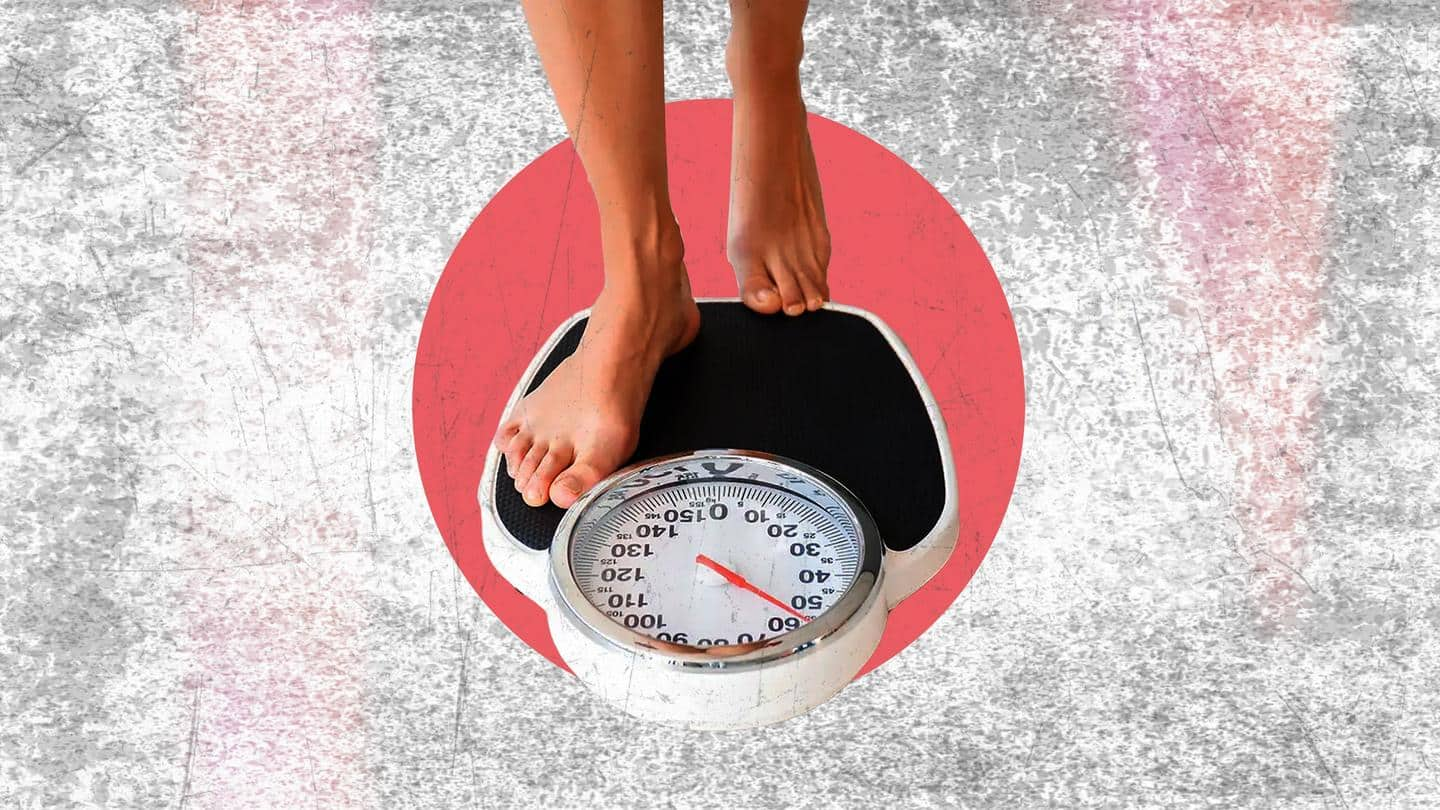
Menopause weight gain: Here's how you can avoid it
What's the story
Menopause marks the end of your menstrual cycle as your reproductive hormones decline. It usually happens in your late 40s and 50s.
Some symptoms of menopause include irregular periods, night sweats, insomnia, and mood swings.
Tremendous hormonal changes in the body may also lead to sudden weight gain for many.
If you are going through menopause follow these tips to ensure healthy weight loss.
Exercise
Engage in some physical activity
After menopause, it's important to stay active and be involved with some physical activities daily to stay fit.
Regular exercise not only helps you to lose unhealthy weight but also prevents age-related muscle loss.
You can try aerobic exercises and strength training twice a week to maintain a healthy weight.
Experts often recommend brisk walking for 150 minutes a week.
Portion size
Practice mindful eating and control your portion size
Eating mindfully can help change your eating behaviors and reduce stress which results in weight loss.
Mindful eating promotes better digestion, helps you to make wiser food choices, and, keeps you full despite eating less.
Also, reconsider your portion sizes to avoid binge-eating and prevent weight gain.
Avoid eating in front of the television to control your portion sizes better.
Healthy diet
Eat nutritious food
Avoid eating junk and sugary food items and limit your alcohol intake, to lose weight effectively after menopause.
Instead, load your plates with nutrient-rich foods including fresh fruits, green vegetables, whole grains, and lots of lean proteins in the form of beans, fish, and chicken.
Practice healthy munching, and stay away from highly-processed foods like cakes, cookies, donuts, and sugar-sweetened beverages.
Sleep
Get proper sleep
According to research, menopause can slow down your metabolism, and sleep disturbances can occur due to aging.
Changes in your sleep quality and the alteration in circadian rhythms can negatively impact the body fat composition, appetite hormones, and energy expenditure.
So, turn off your mobiles at least an hour before bedtime and get eight hours of restful sleep to lose weight.
Stress
Avoid stress
Too much stress and anxiety can contribute to weight gain by boosting your hunger and tricking your brain into thinking that your body needs more calories to get relief from stress.
Stress can also lead to abdominal fat, an increase in cortisol levels, and cardiovascular diseases.
Try to stay positive and surround yourself with nature. You can step outside and enjoy the greenery.